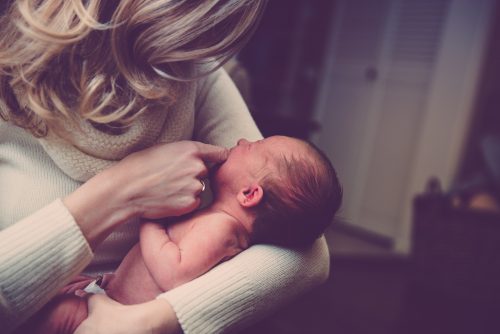Ahead of International Women's Day - MLA confirmed: female students after giving birth will be able to miss up to 40% of the classes in an academic course

- The MLA also ordered the comparison of the conditions of an advanced degree student who receives a research scholarship to the conditions of an employee entitled to receive maternity benefits from the National Insurance
- The new adjustments also apply to students after birth (or adoption)
News for female students ahead of International Women's Day: The Council for Higher Education, headed by Education Minister Naftali Bennett, decided at its meeting on Tuesday to expand the right to absence from classes for female students after giving birth (or adoption). According to the approved decision, the total possible absence from classes for female students after giving birth (or adoption) will be about 40% of the classes in an academic course (where attendance is mandatory), this for the purpose of recovery from childbirth and treatment of the newborn's knee in its first year. The directive is valid for all academic institutions in Israel.
The student rights rules established in 2012 stated that female students after giving birth are entitled to an absence for a period of six weeks or 30% of all classes - whichever is higher. Following the initiative of MK Shuli Moalem and the involvement of the National Student Union, the issue was brought up for discussion at the MLA which, as mentioned, decided to expand the eligibility and determine that a female student after giving birth (or adoption) would be entitled to an additional absence of 10% of the classes in an academic course (in which attendance was mandatory) ), for care of a newborn in his first year of life. The MLA decided that a student after birth (or adoption) would also be entitled to this adjustment.
Also, the MLA approved adjustments for students after giving birth (or adoption) also in the context of research scholarships. According to the student rights rules, until today, an advanced degree student (postpartum) was entitled to continue receiving her research grant for 14 weeks after giving birth. After that, the academic institution was entitled to limit the payment of the scholarship until she returned to research.
However, in light of the amendment to the National Insurance Law and the expansion of the payment of maternity benefits from 14 weeks to 15 weeks, and with the aim of comparing the conditions of female graduate students (after giving birth) to the conditions of female employees entitled to receive maternity benefits from the National Insurance, MLA decided that also The research grant will be awarded for 15 weeks.
It will be emphasized that in any case, and in order not to harm the research, a student for an advanced degree after giving birth, will be entitled to the extension of the scholarship for a period equal to the period of absence. That is, if the student stays at home for 15 weeks in order to take care of the baby, she will be entitled to the payment of the scholarship during this period and also to the extension of the scholarship for an additional 15 weeks, this is to avoid a situation where the research is harmed because of her stay at home. As mentioned, this section refers to both women and men.
Deputy Chairman of the MLA Prof. Edo Perlman: "The higher education system requires academic excellence, but at the same time we are committed to providing students with the best conditions and tools for success. Following many inquiries received at the MLA, we found it appropriate to come to the students after childbirth and extend the period of absence from classes for the purpose of recovery from childbirth, rest and treatment of the newborn's knee."
Ram Shefa, chairman of the national student union: "For student mothers, the academic challenge is twofold, and any such relief is significant. We fought for the expansion of the regulations for student mothers and we are glad that the MLA cooperated with us. The academic system should do its utmost to allow a wide variety of populations to enter the gates of education, and give the most support to ensure the success of the students."
